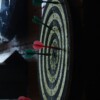
Table Talk: Short Talks on the Weightier Matters of Law and Religion
“For we live not only under the rule of law. We live also under the rhythm of law—the ebb and flow, the different paces and places for legal practice[.]” (John Witte, Jr.)
Introduction
On June 18, 2024, a group of 100 deans of American law schools issued a simple and succinct letter outlining the responsibilities of lawyers to sustain the integrity and importance of the legal profession. They committed to a list of important elements for the next generation of lawyers to adopt, including (1) upholding the highest standards of professionalism, (2) instilling the values of engaging across partisan and ideological divides, and (3) implementing the necessary steps to educate lawyers to defend our constitutional democracy.
Clearly, many if not most in the legal academia are seeing something gone awry. The recent pro-Palestinian protests have made it abundantly clear that there remains a fissure between the expectations of students and the university leadership regarding the very purpose of higher education. And while law schools were mostly removed from these rallies,1 I agree with the deans who signed the letter that the legal profession stands in a unique position to speak clarity and calm into these tensions.
Table Talk
I don’t know anyone who has dealt with the tensions of the moment better from the legal community than the professor and renowned expert on legal history, John Witte, Jr. He was my mentor at Emory Law when I was pursuing my S.J.D. and has remained one of the most formidable voices in the construction of meaningful solutions to seemingly indefatigable conflicts. What he wrote about his mentor, Harold J. Berman, is equally true of John himself—both wield a “remarkable ability to think above, beyond, and against convention.” Which is why it has brought me great joy to see John issuing a few of his more personal insights in last year’s Table Talk publication (open access), from which I want to dig out the connection between the importance of law and the duty to serve within the profession.2
1) The Law as Cathedral
The first and maybe the most consequential piece of wisdom that John teaches us in his Table Talk is the importance of understanding that the legal profession is bigger than any one of us. We do not enter the profession to serve our ends alone, we get to be a part of an ancient tradition that undergirds the very foundation of society. Anyone who wants a demonstration of this reality needs to go no further than the Courtroom at the Supreme Court, where those in attendance are surrounded by a marble frieze depicting the “great lawgivers of history” that have raised the early customs for our expectations when it comes to entering society. And among them is no shortage of religious figures who have indelibly disqualified any notions that our country could be scrubbed from the presence of religious influence.
John knows this well, describing the law as a “living system” (19) and “a massive medieval cathedral, always under construction, always in need of new construction” (22). Short of being removed from the lives of ordinary people, he writes how the law stands “at the center of the city, at the center of matters spiritual and temporal, at the center of everyone’s life” (22). And jurists, for their part, exist to hold the place of both masters and servants: they are drawn from the pedigree of chance and labor, installed as heralds with crafts and callings intended to be used for the maintenance of this cathedral. Attorneys stand to inherit the labor of the past, commissioned to continue the work of the present, and to steward this splendid task for the coming generation. John explains this better than I ever could:
We must not grow too proud in our own craft, too lost in painting our own frescoes, too confident that our little chapels of study are equivalent to the cathedral itself. We must not be too contemptuous of the past by removing or remodeling too easily what earlier workers have done. We must not be too contemptuous of the future, by believing that our formulations are beyond amendment and emendation. And most of all, we must not forget why we are here in this cathedral of the law—to give glory to Almighty God and to give loving service to our neighbor. (23)
That is the call of a jurist and a call that begins with a true understanding of the spirit of a servant depicted with astounded resonance by Christ when he emptied himself by taking on the form of a suffering servant and thereby leaving us an example that we should follow in His steps.3 And so the question remains: how do we serve well in the legal profession?
2) The Servant Lawyer
One of the challenges that young attorneys will face in the legal profession is balancing Christian character with the requirements of due diligence. As John notes, Christians are repeatedly told in the Bible to serve as “prophets, priests and kings” (73) and as Robert F. Cochran recently wrote, lawyers are called to be servants in their profession, which might require a level of ingenuity to see beyond the usual paths.4 At the same time, there is the adversarial model that pushes attorneys toward the construction of habits entirely based on a model of self-service. As John notes correctly, the legal vocation is unique—it provides a powerful medium to “speak prophetic truth to power, to offer priestly service to all neighbors, and to foster rules and regimes . . . marked by justice, mercy and faith” (73). The law itself is a powerful measuring tool to weigh the balance of power and seek justice in the lives of the “exotic other” (15) left marginalized and abandoned by our structures of power that puts an undue premium on prestige, wealth, and beauty.
How to find that balance could fill a book and so this section will not presume to diminish the depth of this discussion with brief remarks. For those eager for more answers, Cochran’s The Servant Lawyer is the latest chapter in this ancient experiment. For my part, I am merely bringing to light the importance of finding the proper balance between the requirements of the profession and the duties of Christians to live as prophets, saints, and kings. We must exist in constant flux between the hours that we bill and the hours that we owe. We must wrestle with the meaning of good stewardship from the lenses of secular and sanctified affairs. Until we embrace these tensions, we will hamper our opportunity for true growth and effective witness.
In doing so, it remains important that we don’t short-change the process by working out a work-life balance that allows our faith to be domesticated. Nor should we cover our lights by becoming unadaptable and remote in our working environments. As John writes, “[w]e must strive, with God’s help, to make our life of faith so true, so lovely, so gentle, so peaceful, so beautiful that even the most bitter and hardened enemies of Christ will be drawn to is irresistibly” (63–64). And the bitter and the hardened is all too common in the legal profession.
Conclusion
In one of his short talks, John uses the imagery of a beehive to argue for the notion that various institutions are governed well when they are governed by a set of “norms and narratives” (17) that undergird the meaning and purpose for collective action and internal cohesion. He notes that the political beehive, for example, works to habituate and initiate a new generation of citizens through the vehicle of education to help the incoming community understand the “norms and habits, structures and processes of democratic citizenship” (18). I think this speaks precisely to the underlying spirit of the letter mentioned above and the desire of the deans who signed it to secure a future for the legal profession based on a new dedication to good stewardship.
I don’t know how often that word is used outside the Christian community, but stewardship is one of those terms that helps me realign my focus on the responsibilities of my calling. There is no specific way that every person must engage in the legal profession to be a good steward, but I do know that discerning that path will require a distinctive pattern of habits that the profession itself will consistently seek to derail. That is why the Christian legal community must continue to talk to each other on best practices, seeking wisdom from academics and practitioners alike in finding meaningful approaches to live a life worthy of the Gospel. We must be able to discern the changing nature of the legal profession and the new wineskin we are being asked to help shape for the good of society.
This sentiment was captured well by John when he wrote that each Christian must freely serve his neighbor through whatever means he can supply and in whatever context God has provided. But “the precise nature of our priestly service to others depends upon our gifts and vocation.” (55) So, let us enter this profession anew and seek to guide its capacity to pursue the things that make for peace and for the furtherance of justice and love. Let us do this together—through difference and distance.
Footnotes
- Two prominent exceptions were Columbia and UC-Berkeley. See Sharon Otterman, “Columbia Law Review Website Is Taken Offline Over Article Criticizing Israel,” New York Times, June 4, 2024, https://www.nytimes.com/2024/06/04/nyregion/columbia-law-review-website.html; David Lat, “A Tale Of Two Protests: UVA v. Berkeley Law,” Original Jurisdiction, April 11, 2024, https://davidlat.substack.com/p/protest-berkeley-law-dean-erwin-chemerinsky-home.
- John Witte, Jr., Table Talk: Short Talks on the Weightier Matters of Law and Religion (Leiden: Brill | Nijhoff, 2023).
- See Philippians 2:5–8; 1 Peter 2:21–24.
- See generally Robert F. Cochran Jr., The Servant Lawyer: Facing the Challenges of Christian Faith in Everyday Law Practice (Downers Gove, IL: IVP Academic, 2024). I have discussed Bob’s book from the standpoint of learning to adapt well in the legal profession through the construction of good habits. See Anton Sorkin, “Into the Piece of Wild Things,” Cross and Gavel Substack, June 11, 2024, https://crossandgavel.substack.com/p/into-the-peace-of-wild-things.























